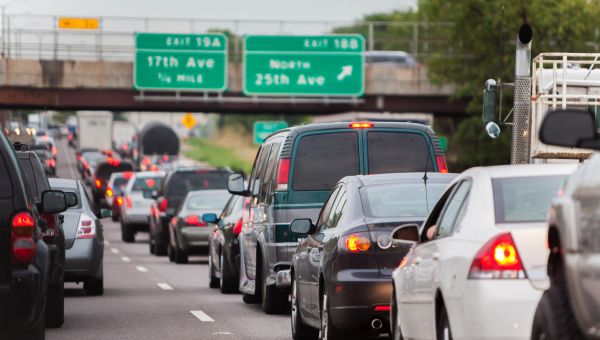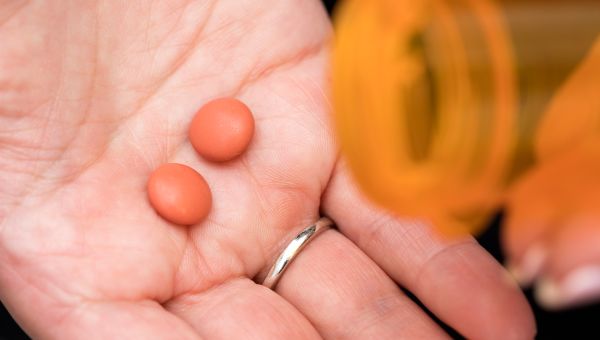8 surprising things that can harm your heart
Learn more about some lesser-known risks to your heart health.
Updated on September 28, 2025

Many people know that smoking and an unhealthy diet are harmful to the heart. But some dangers are less obvious—and may be life-threatening, according to Ashesh Parikh, DO, of Medical City Alliance and Medical Center of Fort Worth in Texas.
Here are eight lesser-known risks to your heart, and how to protect your health.

Sitting too much, or not moving enough
Spending long periods of time sitting on the couch isn’t good for your heart—or your health in general. Multiple, high-quality studies have found that sitting is linked to an increased risk of heart disease, cancer, diabetes, COPD (chronic obstructive pulmonary disease, which causes chronic inflammation and damage to the lungs) and much more. And the longer you’re sitting, the worse it is for you.
There are ways you can help counteract the effects of sedentary behavior, including:
- Taking breaks: Try short walks or stretching throughout your day. Many healthcare providers (HCPs) recommend standing up and doing something every 30 minutes.
- Moving around during downtime: Standing, stretching and folding laundry are good options when you’re doing something passive, like watching television.
- Adding steps to your day: Try walking, using stairs instead of escalators or doing a lap around your block when you need a break.
- Exercising: The general guidelines for overall health are at least 75 minutes of vigorous or 150 minutes of moderate physical activity each week, but any movement can help.

Having depression and not getting help or treatment
The health of your heart is linked to the health of your mind. In fact, experts theorize that this connection may go both ways—or people with heart disease may be at higher risk for depression and those with depression may be at higher risk for heart disease.
Between 20 and 30 percent of those with heart disease also have depression. Meanwhile, people with depression are 64 percent more likely to develop coronary artery disease (CAD), the most common type of heart disease in the U.S. caused by a buildup of fat-like deposits called plaque in the wall of arteries that supply blood to the heart. They may also be 59 percent more likely to have a heart attack or other heart event in the future, the National Heart, Lung and Blood Institute reports.
Scientists are still working to understand why this happens. Some research suggests that mild depression and anxiety—where symptoms are so subtle that people may not think to go to the HCP and get diagnosed—were linked to a 29 percent increase in death due to heart disease. High levels of depression and anxiety were also associated with more than double the risk of heart-related death.
Why? Depression, anxiety and daily stressors—such as a fight with a family member—are possible explanations. They all contribute to spikes in the levels of the stress hormone called cortisol, says Dr. Parikh, and increased cortisol raises your chances of high blood pressure and heart disease. Research has also found that depression is connected to a higher risk of clogging of the arteries. It also makes you less likely to exercise, eat a healthy diet, and seek medical care—all of which contribute to poor heart health.

Being unemployed or losing your job
One 18-year study looking at 13,000 middle-aged adults and seniors found a strong link between unemployment and heart health. Participants’ risk of heart attack increased a little more each time they experienced a job loss, from 22 percent after the first bout of unemployment to up to 63 percent after four or more. What’s more, researchers found that four or more job losses were as potentially harmful as diabetes, high blood pressure and smoking.
Researchers believe many factors may be involved. People who lose their jobs may skip out on preventative care and check-ups, for instance, and unemployment also increases stress levels, a known risk factor for heart disease.

Not taking good care of your teeth and gums
Protecting your teeth and gums by brushing and flossing every day could help keep your heart healthy.
When your mouth is unclean or you have an abscess, a cavity or gum disease that goes untreated, the bacteria ends up in your bloodstream, eventually making its way into the valves of the heart. The bacteria from your mouth can grow on those valves, put pressure on them and even cause them to rupture or break. This condition, called endocarditis, can be life-threatening.

Eating too much salt, sugar, and saturated (solid) fats, like butter
When you don't have a lot of time or energy at meal times, some of the easiest options, like fast food, are high in saturated fat, which can contribute to heart disease over time. And the added sugar is also unhealthy for your heart.
One study from the University of Alabama at Birmingham found that people whose diet consisted heavily of so-called Southern-style foods, like fried chicken, had a 56 percent increased risk for heart attack. Those people were also more likely to have high blood pressure and diabetes, which raise the odds of a heart attack.
Luckily, you don’t have to avoid all of your favorites. Instead, opt for healthier versions of grandma’s cooking:
- Diabetes-Friendly Mac and Cheese
- Healthier Apple Pie

Having to travel far each day for work or other commitments
Sitting in traffic is very frustrating—but it could actually be harmful to your heart health.
“We’ve seen that if patients’ commutes are longer than 30 miles, they tend to be much more obese and have a much higher risk for heart attack or stroke,” says Dr. Parikh.
Research has also shown that long commutes are linked to increases in blood pressure, cholesterol and anxiety. All that time in the car may take away from your fitness routine or tempt you to choose unhealthy fast food, too—and that can increase your heart disease risk.
If you know you have a long commute or may run into traffic, packing some healthy snacks ahead of time, such as a sliced apple or carrot sticks, some lightly salted popcorn, or a peanut butter and jelly sandwich, can help you avoid unhealthy options on your way home.

Smoking, vaping, or using other tobacco products
E-cigarettes have increased in popularity over the last few years. While they've been advertised as a safe alternative to cigarettes, experts warn that, beyond the evident potential for lung damage, the long-term effects are still largely unknown. And studies have hinted that certain substances in e-cigs, such as nicotine, can harm the heart.
Some people use e-cigarettes as a tool to help them stop smoking cigarettes. But e-cigarettes or vapes are not approved by the U.S. Food and Drug Administration (FDA) as a way to help people quit. There are many other safe, effective and proven alternatives. No cigarettes, including e-cigarettes, are safe when it comes to your overall health, says Parikh.

Taking too many drug-store pain medications too often
Headaches are often treated with over-the-counter (OTC) pain relievers you can find in the drug store, like ibuprofen and naproxen. But the U.S. Food and Drug Administration (FDA) warns these non-steroidal anti-inflammatory drugs (NSAIDs) like ibuprofen or naproxen could raise your risk of heart attack and stroke—even after short-term use. The longer you take them, the higher your risk.
This does not mean that you can't take these medications to help manage headaches or other minor aches and pains. But the FDA does recommend taking the lowest effective dose for the shortest possible time. Follow the directions on their label to ensure you take only as much as you need to get some relief. “If you’re taking it within the recommended dose, it’s still a very safe drug," Parikh explains.

Reinberg, Steven. “Even Mild Depression, Anxiety Hurt the Heart.” Everyday Health. August 1, 2012.
“Screen Teens With Depression for Heart Disease, Experts Say.” HealthDay. August 11, 2015.
Blue, Laura. “Unemployment is hard on the heart, and the harm may add up.” TIME.com. November 23, 2012.
Klystra, Carmen. “10 Things Your Commute Does to Your Body.” TIME.com. February 26, 2014.
Walton, Alice. “Study: ‘Southern Diet’ Strongly Linked to Heart Disease.” Forbes.com.
American Dental Hygienists Association. “INFLAMMATION: The Relationship Between Oral Health and Systemic Disease.”
American Heart Association. “Inflammation and Heart Disease.”
Reinberg, Steven. “More Evidence That Southern Cooking Boosts Heart Risk.” HealthDay. August 10, 2015.
University of Pittsburgh Medical Center. “E-cigarettes & Heart Health.”
Cleveland Clinic. “E-Cigarettes: Tobacco-Free, But Your Heart May Still Be at Risk.”
Curfman, Gregory. “FDA strengthens warning that NSAIDs increase heart attack and stroke risk.” Harvard Health Publishing. July 13, 2015.
U.S. Food and Drug Administration. “FDA Drug Safety Communication: FDA strengthens warning that non-aspirin nonsteroidal anti-inflammatory drugs (NSAIDs) can cause heart attacks or strokes."
More On


video

slideshow


video


video
